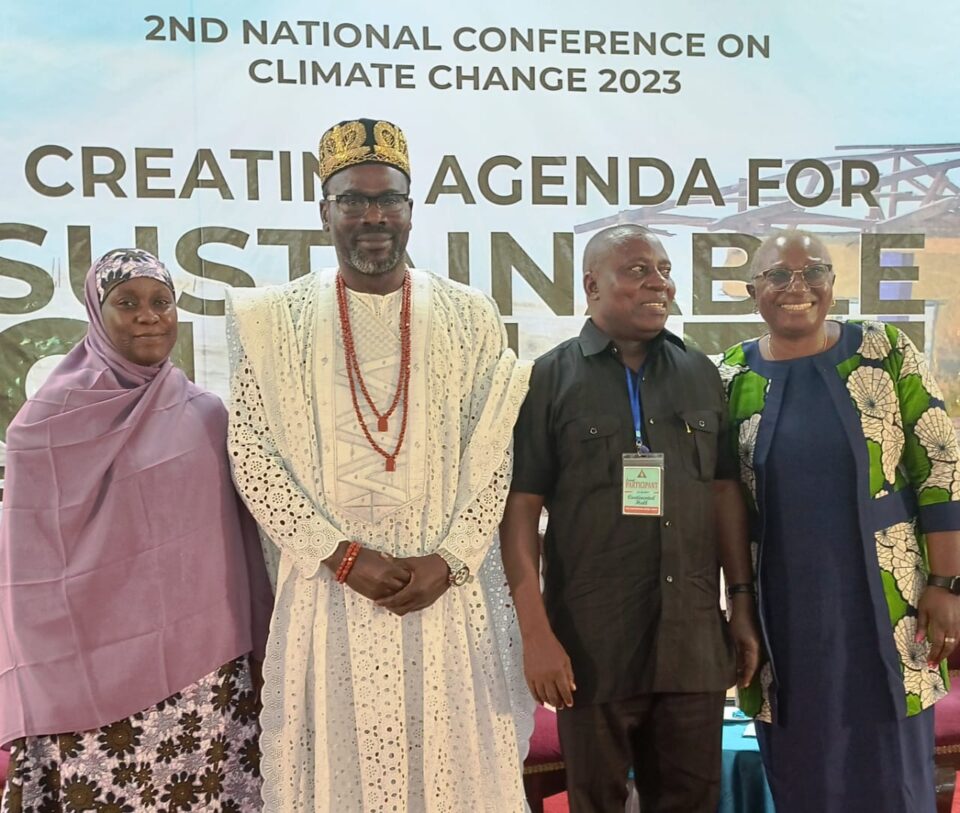Corporate Accountability and Public Participation Africa (CAPPA), on Monday, called on the Federal government a new source of funding to address the risks posed by climate change.
The Executive Director of CAPPA, Mr Akinbode Oluwofemi, made this call at the Second National Conference on Climate Change with the theme: “Creating an Agenda for Sustainable Climate Finance For Nigeria,” held in Abuja on Monday.
The effects of climate change are set to skyrocket in the coming years. With Nigeria as one of the worst hit in Africa, and its sole reliance on climate finance, the Executive Director stressed the need for urgent intervention through new sources of funding, as well as adaptation and mitigation among others.
“Climate finance in Nigeria has relied exclusively on concessional debt which is about 46% and non-concessional debt at 25%. Grant and equity-based finance currently play a relatively minimal role in Nigeria’s climate finance ecosystem, at 5% and 12% respectively.
“Nigeria’s climate finance is not yet reflective of the country’s vulnerability. Efforts in adaptation and mitigation are yet to be scaled up significantly to embrace our realities. Nigeria like every other country in sub-Saharan Africa is classed as a vulnerable country considering its exposure to climate risks.
“The effects of climate change are set to accelerate over the coming years unless progressive climate finance and a well-structured loss and damage funding mechanism are institutionalized and appropriately managed. There is undoubtedly a need to create a new source of finance that will address climate risks and arrest emission upsurge,” he said.
He recalled that days after the African Climate Summit in Kenya, Nigeria Hydrological Services Agency (NIHSA) cautioned that about 178 local government areas (LGAs) in 32 of the 36 states in Nigeria including the Federal Capital Territory fall within the highly probable flood risk areas.
“According to the agency, more than 830 kilometres of coastline areas and communities in Nigeria are increasingly threatened by floods, erosion, water, and air pollution. Communities in the Niger Delta states bordering the Atlantic Ocean have lost or fear losing their homes and farmlands due to the eroding bedrock shielding the shoreline.
“In the Northern part of Nigeria, desertification is encroaching on arable lands, affecting roughly 580,841 square kilometers out of 927,892 square kilometers, with approximately 62 million Nigerians now directly or indirectly impacted. Climatic fluctuations, deforestation, extensive cultivation, overgrazing, marginal land use, bushfires, firewood harvesting, faulty irrigation: systems, and urbanization have all been identified as major contributing factors to this: phenomenon.”
He also called on the Transitional Committee on Loss and Damage to draw inspiration from the realities of frontline communities in the Global South, including Nigeria, and initiate actions for the expedited disbursement and effective management of climate funds
Furthermore, he recommended that Loss and Damage Funding arrangements follow the principles of equity. fairness, transparency, and Common but Differentiated Responsibilities (CBDR). “It must be Party-driven with decisions based on consensus.



